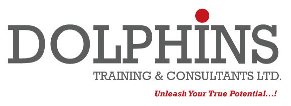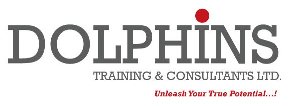
We Push the Human Race Forward... So Do You...
►Discover more Amazing programs from below...
►Find Your Greatness....
►Unleash Your True Potential....!

As a Managers who understand the financial side of their business,you are much more effective than those who don't.
This high Impact training will demystify the language of finance to enable you to contribute more effectively to business success.
This course adopts a common sense, layman's approach to enable delegates to understand and interpret financial statements, improve their ability to forecast and manage costs and understand key accounting concepts.
By the end of the workshop, delegates will be able to:
- Understand the importance of finance and of controlling costs
- Appreciate how budgets are constructed and utilised
- Make sense of financial jargon related to published business accounts and management accounting reports
- Demonstrate their understanding of cost management, the budgeting process and the need for effective budgetary forecasts and control
- Demonstrate their understanding of financial techniques associated with capital expenditure and the concept of risk management
Outline:
Lesson 1: Basis of the accounting system
• The different functions of accounting
• How does the accounting system work?
• What is the chart of accounts?
Lesson 2: Major accounting terms, principles and concepts
• Assets and how they are valued
• Liabilities and how they are valued
• Equity and how it's disclosed
• Revenue and expenditure
• What are the provisions, accruals and prepayments?
• Depreciation and other non-cash items
• What is accrual accounting?
• Profit versus cash
Lesson 3: The financial statements
• Understanding the connection between the financial statements
• The Balance Sheet - the financial "snapshot" of the business
• The Profit and Loss Statement - the historical record of trading
• Internal versus external reporting
• What are the more important items should look for?
• What the financial statements will not disclose
Lesson 4: Analysis of financial statements
• How ratios are used to measure financial performance
• The more important financial ratios you should know
• What is Economic Value Added (EVA) and why you should understand it
• How you can use ratios to better manage you business unit
Lesson 5: Costs, volume and prices
• Different types of cost behaviour
• How overheads are allocated or recovered
• How you can use break-even analysis to better plan
• How costs, volumes and prices affect profit
• Costing and pricing products and services
Lesson 6: Improving your management of working capital
• Why is working capital important for a business?
• How would you impact on your organisation's working capital
• How much working capital does your business need?
• Elements of good working capital management
Lesson 7: Improving your capital budgeting
• Planning for capital expenditure
• What is the importance of the cost of capital?
• Overview of major capital budgeting techniques
Lesson 8: Improving your planning and budgeting
• Business planning and budgeting
• Why is budgeting necessary?
• Budget preparations methods
• How budgets can go wrong
• Budget variances analysis
Lesson 9;Putting all together...
Reserve Your Slot Today;
Nairobi Program Here►
Mombasa Program Here►
Kampala Program Here►
Kigali Program Here►
Dar es Salaam Program Here►
Some of previous participants hand this to say..►
>
Create your profile here with ease and showcase yourself to large number of potential recruiters/employers/business owners /dept heads all waiting to view you Today....Click Here
www.special-employee.com


.jpg)
.jpg)
.jpg)
.jpg)

.gif)


.jpg)
.jpg)
.jpg)


.jpg)